Solopreneur Spotlight: Bri Crabtree on Adapting as a Professional Performer to COVID-19
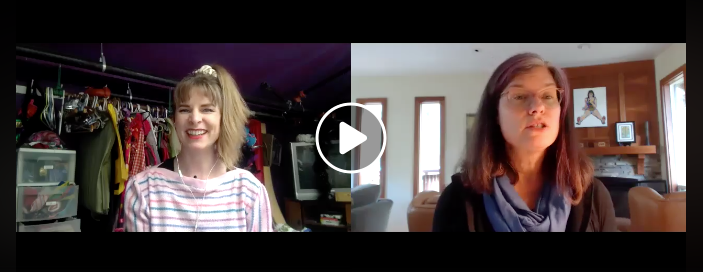
Bri Crabtree is a professional circus performer. She juggles, unicycles, and entertains people of many different ages with silly antics. Typically, she performs at a variety of events. When COVID-19 hit, her work for the foreseeable future was cancelled. Bri quickly pivoted both her business tasks and personal finances to address this new challenge. Here are some of the insights she shared with me in a recent video interview.
Making Connections & Staying Connected
Bri told me that as soon COVID-19 began impacting her work, she started making personal connections and reaching out for opportunities. She also spoke about her social media strategy during this time. She told me she’s become more active on social media in order to maintain a presence in her clients’ minds. Through online offerings like her Silly Circus Show virtual parties, posts to her Instagram, Facebook, and her newly created Patreon account, she’s staying connected to fans. These accounts give her a chance to do a lot of behind the scenes work and show her clients what those processes look like. Making content like this also gives her more time to work on the many costuming, puppet-making, and other prop-related projects involved in her business. I loved this video from her costume closet!
Opening Income Streams & Applying for Aid
When Bri reached out to others looking for opportunities to make up for her lost work, she found solutions in the form of new income streams. She was offered a babysitting job and directed to a place where she could take paid surveys.
She also applied for aid in a couple different forms. She applied for unemployment early on, although she didn’t get good results. She also applied for EBT, and applied for and received a grant from the Bay Area Safety Net Fund.
Her new virtual party offerings, stickers, and her Patreon account are also new income streams that she has opened during COVID. All of this combined shows Bri’s flexible and diverse approach to adapting her business during this time.
Zeroing In
Bri talked about how important it was for her to “zero in” on essentials and pare down her budget. One thing that’s been particularly helpful is going out to eat less, and cooking more at home. She’s been buying staple foods in bulk, for economic reasons and to keep herself well-stocked. Many people are trying to stay focused on essentials right now. Bri and I worked to establish a comfortable spending plan for her life. Here’s some ideas on how to do that for yourself.
Keeping A Good Mindset
Maintaining a good mindset through these challenges has been key for Bri. Much like my interview with Jennifer Graham, Bri shared some specific things that have been helping her out. She’s been learning to play the ukulele (and sharing her progress!). She also works out four times a week, citing Ground Up Fitness Home Workouts as one of her favorite resources.To keep track of both of these projects, each day she uses a motivational sticker calendar.
Finally, she spoke to me about feeling financially confident during these challenging times, because of the work we’ve done together on her finances in the past. As a coach, it’s good to hear that work is paying off.
Flexible Thinking
 The many ways Bri has adapted her business to the conditions of COVID-19 show a lot of flexible thinking. She problem-solved in a number of ways, from adapting her offerings to the digital realm, to pursuing income streams unrelated to her talents, to applying for aid and creating healthy routines for herself. Her new approaches to her business have not only kept her afloat, but also created new opportunities. The fact that she has created a Patreon and gotten to create more behind-the-scenes content for her clients is a wonderful use of her time. It allows her to work on those projects, and create more interest in her work.
The many ways Bri has adapted her business to the conditions of COVID-19 show a lot of flexible thinking. She problem-solved in a number of ways, from adapting her offerings to the digital realm, to pursuing income streams unrelated to her talents, to applying for aid and creating healthy routines for herself. Her new approaches to her business have not only kept her afloat, but also created new opportunities. The fact that she has created a Patreon and gotten to create more behind-the-scenes content for her clients is a wonderful use of her time. It allows her to work on those projects, and create more interest in her work.
You can watch our full video interview here. You can also follow Bri on her site, check out her Silly Circus Show, support her on Patreon, and see what she posts on Facebook and Instagram. If you enjoyed this article, you might also like the two I wrote about how Jennifer Graham, a photographer in the Bay Area, has adapted to COVID.
Angela

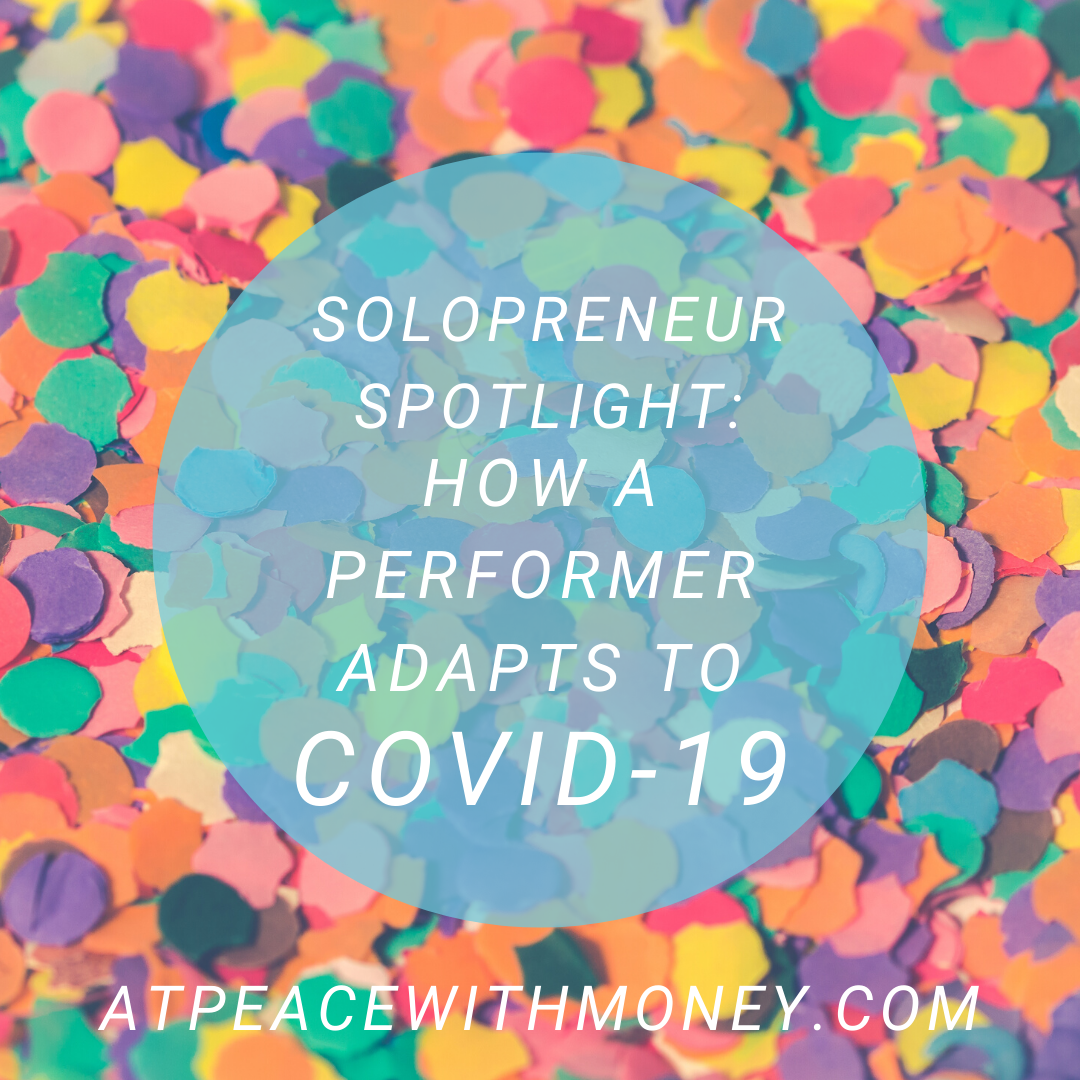




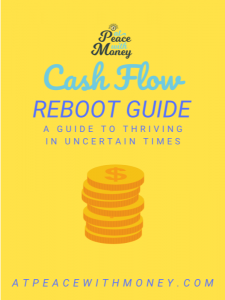 valuable at a time like this. Because Jennifer is able to acknowledge her feelings and tend to them, she has more mental space available when it’s time to get to work.
valuable at a time like this. Because Jennifer is able to acknowledge her feelings and tend to them, she has more mental space available when it’s time to get to work.

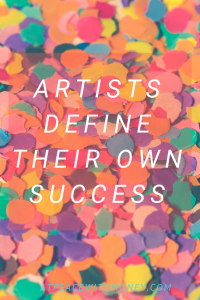 Overall, Megan stressed the importance of understanding what you really want from your business and your life, and structuring it to include more of what you want. Whether this is more time in the studio, more time with your family, or less time spent on certain tasks, automation helps creatives focus on the work they really want to be doing. I have written a little bit about how
Overall, Megan stressed the importance of understanding what you really want from your business and your life, and structuring it to include more of what you want. Whether this is more time in the studio, more time with your family, or less time spent on certain tasks, automation helps creatives focus on the work they really want to be doing. I have written a little bit about how 
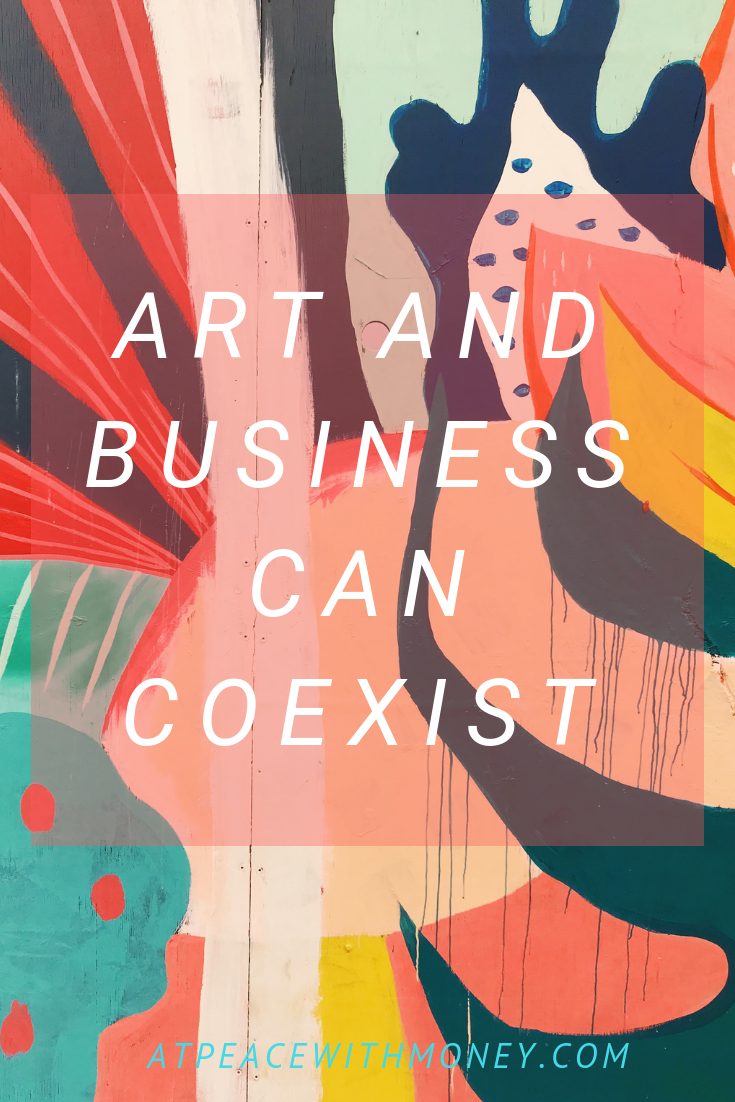

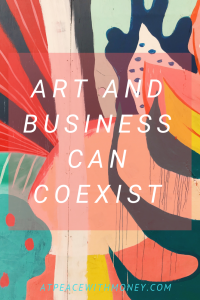 I really enjoyed speaking with Megan because our goals are very similar; we both want creative solopreneurs to have profitable businesses that allow them to spend time doing what they most want to do. Whether it’s their creative work or other pursuits, all of those things take financial security. Business success is within reach, even, and especially if you run a creative business. I encourage you to watch the full interview here and check out Megan’s resources,
I really enjoyed speaking with Megan because our goals are very similar; we both want creative solopreneurs to have profitable businesses that allow them to spend time doing what they most want to do. Whether it’s their creative work or other pursuits, all of those things take financial security. Business success is within reach, even, and especially if you run a creative business. I encourage you to watch the full interview here and check out Megan’s resources,